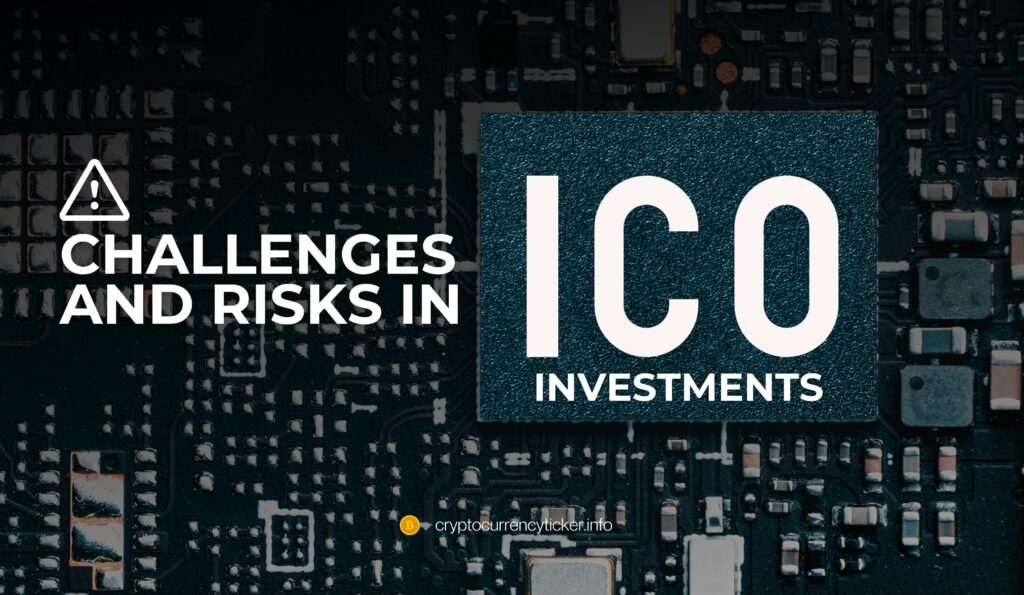Blockchain technology, a decentralized ledger system, has significantly impacted data security and financial transactions. Within this realm, Initial Coin Offerings (ICOs) have emerged as a novel fundraising method, originating in 2013. ICOs allow startups and projects to raise capital by issuing digital tokens in exchange for cryptocurrencies like Bitcoin or Ethereum. These tokens can represent various rights within the issuing entity. ICOs democratize financial investments, making early-stage funding accessible to a broader audience. Despite challenges like regulatory scrutiny and market volatility, ICOs remain integral to blockchain innovation, embodying the sector’s ethos of decentralization and community participation.
The Rise of ICOs: A Historical Perspective
The journey of Initial Coin Offerings (ICOs) began with the launch of the MasterCoin project in 2013. This marked the start of a new era in fundraising, where blockchain technology enabled the global financing of innovative ideas. The ICO model quickly distinguished itself from traditional financial mechanisms due to its accessibility and global reach.
ICOs allow projects to raise funds by issuing digital tokens, often in exchange for cryptocurrencies. This method democratized access to investment opportunities, previously limited to venture capitalists and institutional investors. ICOs’ global appeal lies in their ability to fund a wide array of innovative projects, from tech startups to blockchain-based ventures.
The historical progression of ICOs can be outlined as follows:
- 2013-2014: Early Adoption and Experimentation
- Key Projects: MasterCoin, Ethereum
- The emergence of ICOs as a novel fundraising method.
- 2015-2017: Growth and Expansion
- Significant growth in the number and diversity of ICOs.
- Increased mainstream awareness and participation.
- 2018-Present: Maturation and Regulatory Scrutiny
- The market sees more structured and larger-scale ICOs.
- Greater attention from regulators leading to increased scrutiny.
This historical overview shows how ICOs have evolved from a niche concept to a mainstream fundraising tool, contributing significantly to the growth and innovation in the blockchain sector. Despite facing challenges like regulatory changes and market volatility, ICOs have maintained their importance as a catalyst for funding new and innovative ideas.
Recent Trends in ICOs and Blockchain Technology

The landscape of Initial Coin Offerings (ICOs) and blockchain technology is constantly evolving, with several key trends shaping the sector in recent years:
- Growth of Decentralized Finance (DeFi): The financial sector has seen a surge in blockchain adoption, particularly in DeFi. Traditional financial institutions and new ventures alike are using blockchain for transparent asset movement and fractionalization. The global market for blockchain in banking and financial services grew significantly, reflecting this trend.
- Increased Regulatory Scrutiny: Following high-profile incidents like the collapses of Terra and FTX, there has been a notable increase in legal actions and regulatory efforts. This includes charges by the U.S. Securities and Exchange Commission (SEC) against various crypto entities, reflecting a crackdown on fraudulent activities in the ICO space.
- Enterprise Investments in Blockchain: Despite challenges in the cryptocurrency domain, enterprises continue to explore blockchain applications for identity management, supply chain, smart contracts, and more. This indicates a broader interest in blockchain beyond its financial applications.
- Rise of NFTs for Business: Non-fungible tokens (NFTs) are gaining traction as a way for businesses to monetize digital assets and products. Companies are increasingly exploring NFTs for new revenue streams, highlighting their potential in various industries.
- Challenges and Opportunities: The blockchain and ICO sector is navigating a complex landscape of high potential and significant challenges. The balance of innovation, investor interest, and regulatory compliance remains a key focus for the industry.
The Success Factors of ICO Projects

The success of ICO (Initial Coin Offering) projects hinges on a variety of factors. A comprehensive understanding of these factors is crucial for both investors and project creators. Here are some key elements that contribute to the success of ICOs:
Whitepaper Quality: A well-structured and informative whitepaper is essential. It serves as the project’s blueprint, detailing the technical and business aspects, thereby building credibility and trust.
Market Proximity: Projects located in developed financial markets with advanced digital technologies often see more success. Regions like the USA, Israel, and China are notable for fostering successful blockchain ventures.
Social Media Presence: Effective use of social media plays a crucial role in building community support and generating investor interest.
Human Capital: The experience and expertise of the project team are significant. A team with a strong track record in relevant industries can instill confidence in potential investors.
Technical Robustness: High-quality code and technical infrastructure are vital for the project’s long-term success.
Tokenomics: The structure of token distribution and the overall economic model of the ICO are critical. Projects with clear tokenomics tend to attract more investors.
Regulatory Compliance: Adhering to existing regulations and being prepared for potential future changes can significantly impact the project’s viability and investor trust.
Secondary Market Availability: Having the token listed on exchanges ensures liquidity and is a key success factor for ICOs.
Challenges and Risks in ICO Investments

Investing in ICOs, while potentially lucrative, comes with its own set of challenges and risks:
- Market Volatility: The cryptocurrency market is known for its high volatility, which can significantly impact the value of tokens issued via ICOs.
- Regulatory Risks: The lack of standardized regulatory frameworks for ICOs across different countries poses a risk for both investors and project creators.
- Fraud and Scams: The ICO space has seen its share of fraudulent projects and scams, emphasizing the need for thorough due diligence.
- Liquidity Issues: Some ICO tokens may face liquidity challenges, making it difficult for investors to sell their holdings.
- Technical Risks: Given the complex nature of blockchain technology, there are inherent technical risks, including security vulnerabilities.
- Overestimation of Projects: There is a tendency to overestimate the potential of blockchain projects, leading to unrealistic expectations.
The Future of ICOs in Blockchain Innovation
The future of ICOs in blockchain innovation looks promising, despite the challenges. Here are key aspects likely to shape this future:
- Increased Regulation and Compliance: Expect stricter regulations for ICOs, enhancing investor protection and project credibility.
- Integration with Emerging Technologies: ICOs may increasingly integrate with AI, IoT, and other emerging tech, broadening their application scope.
- Focus on Sustainability: Projects with sustainable and socially responsible goals are likely to attract more attention and funding.
- Improved Accessibility and Diversity: Efforts to make ICOs more accessible to a diverse range of investors and entrepreneurs are anticipated.
- Enhanced Security Measures: Advances in cybersecurity will be crucial in safeguarding ICO platforms and token transactions.
Conclusion
ICOs have undeniably revolutionized the blockchain landscape, offering a unique blend of innovation, investment opportunities, and community engagement. Despite facing challenges like market volatility and regulatory scrutiny, ICOs continue to be a significant force in the blockchain ecosystem, driving new and diverse applications of the technology. As the sector matures, the future of ICOs appears bright, marked by increased regulation, integration with emerging technologies, and a focus on sustainability and security. This evolution reflects the dynamic and resilient nature of blockchain technology and its potential to continually reshape the world of finance and digital innovation.
